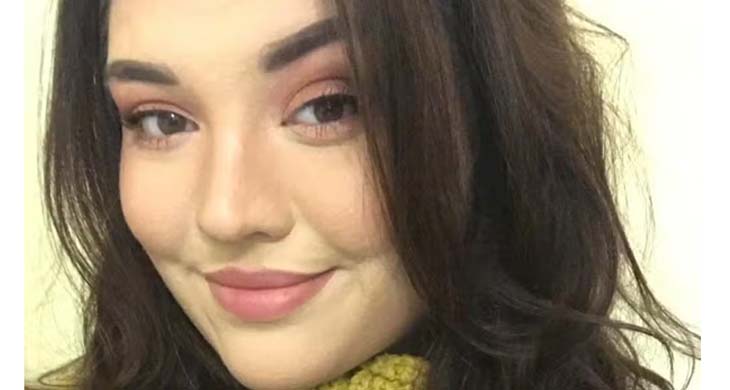Actress, 30, died just 3 weeks after doctors discovered the true cause of her ‘anxiety’ and ‘leg sprain’

AN actress died just three weeks after the true cause of her “anxiety” and leg pain was identified.
Emily Chesterton passed away as a result of a blood clot, which wasn’t picked up in two separate appointments.

The 30-year-old visited her doctor’s surgery on October 31, 2022, to discuss the discomfort she felt in her left calf.
She believed she had seen a GP but she was assessed by a physician associate (PA) – a newer type of medical role that involves significantly less training.
Emily, who was also suffering from shortness of breath, was advised to take paracetamol.
On November 7, she saw a second PA, who diagnosed her with a calf sprain, long Covid and anxiety.
After discussing the fact she was struggling to walk more than a few steps and her leg was swollen and hot, Emily was prescribed propranolol – a beta blocker for heart problems, anxiety and migraines.

During neither appointment did the PAs make it clear they were not doctors.
Emily, a musical theatre performer from Greater Manchester who had moved to London, collapsed later that evening and was rushed to hospital.
She died several hours later due to a blood clot in her left leg which triggered a pulmonary embolism – when a clot gets stuck in an artery in the lung.
A coroner concluded her life could have been saved if she had been “immediately referred to a hospital emergency unit”.
Emily’s parents Brendan and Marion are now raising concerns about a new government scheme to employ more PAs across the NHS.
Marion told the BBC: “All patients should have the right to know who is treating them and have the choice to see a fully qualified doctor.
“If I had my time over, I would have taken her straight to A&E. That is the biggest regret of my life.
“My advice to anyone is always ask who you are seeing.”

She suggested that “doctor’s assistant” would be a more accurate title than physician associate.
She was very empathetic and felt other people’s pain – that’s what made her such a good singer and actress
There are around 4,000 PAs in England, but ministers hope to increase this to 10,000 by 2036 to plug widespread staff shortages across the NHS.
PAs “support doctors in the diagnosis and management of patients”, according to the NHS careers website.
They usually complete a bioscience-related degree before undertaking a two-year integrated master’s course.
Registered healthcare workers, like nurses or midwives, can also apply to become PAs.
Most PAs work at GP surgeries and in A&E, and are supposed to be “under the supervision of a doctor”.
While they carry out similar roles, they don’t have the same medical training so are not direct substitutes.
To become a GP, you complete four to six years of medical school before a two-year foundation training programme.
You can then apply to GP speciality training, which takes a minimum of three years, and pass several assessments.
The Faculty of Physician Associates makes it clear that PAs “are not doctors” and “do not replace medical roles”.
A new law, passed on February 26, will see PAs go on the General Medical Council (GMC) register and be regulated like other medical professionals.
There are concerns from the British Medical Association (BMA) that this will blur the lines between PAs and doctors.
Emily’s GP surgery, The Vale Practice in Crouch End, said it was “deeply saddened” by her death and now only provides appointments with GPs, nurses and pharmacists after a “thorough” review.
It added that staff have been told to ensure that “a patient understands their role at the start of each appointment”.
Marion previously described her daughter as “very sensitive, caring, creative, and generous”.
“She was a beautiful soul, really, inside and out,” she added.
“She was very empathetic and felt other people’s pain – that’s what made her such a good singer and actress.
“It used to send us to tears when she sang.”
Emily studied at the Liverpool Institute for Performing Arts and the Royal Academy of Music.
She appeared in several productions in Liverpool, including Hamlet, Summer of ’42 and The Secret Rapture, according to her LinkedIn profile.
She later starred as Adriana in The Comedy of Errors, Countess Charlotte Malcolm in A Little Night Music, and Orange Girl in SHOUT! The Mod Musical in both Liverpool and at the Edinburgh Fringe.
Her most recent roles listed online are principal female vocalist with Silversea Cruises and featured soloist at Pizza Express Jazz Bar.
Emily also has a SoundCloud account with recordings of her singing songs like I’ve Got You Under My Skin and The Lady is a Tramp.
A Department of Health and Social Care spokesperson said at the time: “The NHS Long Term Workforce Plan makes clear that physician associates and other associate positions can provide vital support in providing medical care and anaesthetic services to patients and can help reduce pressure on doctors, freeing up their time to focus on tasks only they are qualified to do.”
A spokesperson for the NHS added: “Patient safety lies at the heart of the NHS long-term workforce plan and the role of physician associates are a vitally important part of our staffing mix, with over 3,000 members of staff working in this role across the health service in England.
“Physician associates are qualified and trained health professionals usually with a bioscience-related degree, working alongside fully trained doctors as part of the care team.”





